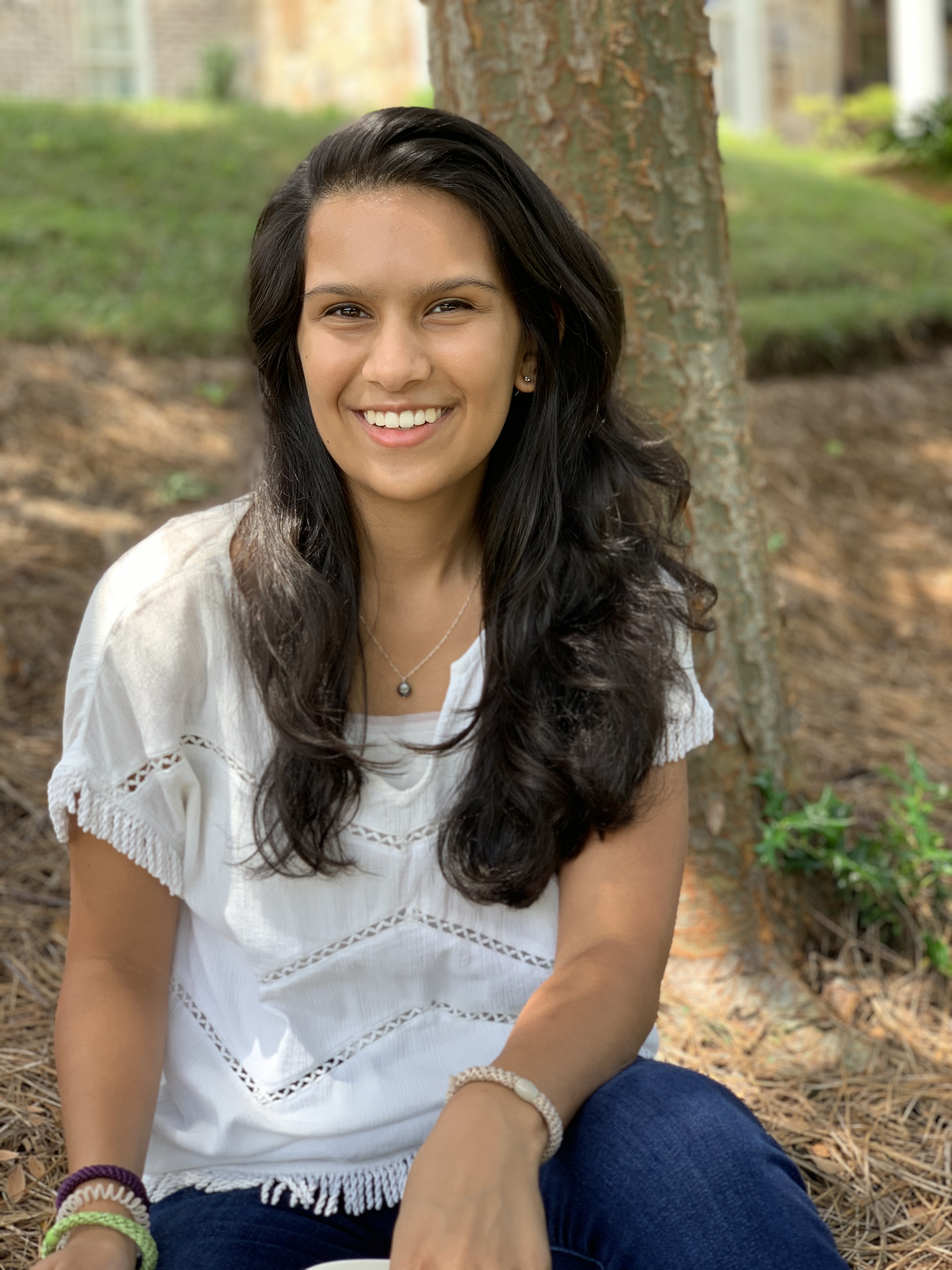This is Your Brain on Religion
Saachi Datta, C’21, is combining her passion for religion and science on her path to becoming a physician.
“Science and religion are just trying to explain the world,” Saachi Datta says. “People need different devices to live, grapple with bigger questions, and try to explain the phenomena of existence.”
Datta, C’21, wants to be a physician. Her religious studies and biology majors prepare her for that, while also deepening lifelong passions. Recently, she co-authored a peer-reviewed article that combined her interests and found that in patients with neurodegenerative diseases, positive religious coping behaviors correlate with better health outcomes than those experienced by patients with coping behaviors negatively influenced by religion (e.g. holding a punitive view of religion) as well as those with nonreligious coping behaviors.
“I have been fortunate enough to travel all over the world, and one of my favorite feelings is like a magical tingling of excitement as I walk into an ancient temple or church,” Datta says. “It’s something I’ve never been able to explain, but at Penn I’ve been able to gain in-depth knowledge about the history and traditions of ancient cultures. Majoring in religious studies was never even a question.
“But then I've also always been fascinated with science and the human body,” she continues. “I think it's the most intricate machine out there. Every single class I've taken has expanded my knowledge and this made me even more interested.”
Religion and science often seem opposed in cultural and political debates, but Datta knows that learning about cultures other than her own and respecting the role of religion and spirituality in people’s lives will allow her to be a more empathetic, effective caregiver. And, she explains, the idea that religion and science are in opposition to each other is a relatively new concept.
We looked at all the ancient religions in the past and how religion and science were just different applications of the mind. They weren't a dichotomy at all.
Her first religious studies course was Science and Religion, taught by Donovan Schaefer, Assistant Professor of Religious Studies. “We looked at all the ancient religions in the past and how religion and science were just different applications of the mind,” she remembers. “They weren't a dichotomy at all.”
Datta has met contemporary scientists who practice religion. “I’ve heard this from a lot of people: the more you learn about what’s out there, the more you have to believe there is something else out there,” she says.
It was a Google search and the happy accident of geography that allowed Datta to combine her interests and contribute to original research. Some internet sleuthing brought her to the field of neurotheology, the science of the brain and mind in conjunction with religion and spirituality. The pioneer of neuroethology is Andrew Newberg, M’92, the director of research at the Marcus Institute of Integrative Health and a physician at Jefferson University Hospital.
Datta emailed Newberg. They met and decided to undertake a research project, which led to a publication. Their article, “The Relationship Between the Brain and Spirituality with Respect to Aging and Neurodegenerative Diseases: Clinical and Research Implications,” appeared in the Journal of Religion, Spirituality & Aging.
We reviewed over 50 studies and concluded that the progression of diseases like Alzheimer’s and Parkinson’s could be slowed down by having a strong spiritual or religious practice.
Explaining the study, Datta says, “We reviewed over 50 studies and concluded that the progression of diseases like Alzheimer’s and Parkinson’s could be slowed down by having a strong spiritual or religious practice. Something interesting and unexpected was that some studies indicate that when religious coping mechanisms are focused on a god that is punishing versus one that is supporting, it creates reports of a negative quality of life or increased depression.”
As the American population ages, simple interventions in the progression of neurodegenerative diseases are potentially powerful. And in the midst of a global pandemic, Datta believes attention to the human mind and how coping mechanisms can improve quality of life is more important than ever.
The COVID-19 pandemic has made changes to Datta’s routine but it isn’t slowing down her work. Back in her hometown of Atlanta since March, she continues to work on research as part of the Penn iGEM team, a competitive bioengineering research team. This fall, she'll take classes that line up with her passions and, she says, teach her something totally new: Cell Biology and Ancient Egyptian Religions. Datta is also continuing to lead Manāna, a nonprofit organization she founded in high school that hosts birthday parties and other celebrations for underprivileged, refugee and sick children in the Atlanta and Philadelphia regions.
“Since the pandemic began, we’ve shifted to virtual events,” she explains. “And we’re opening a new branch in Seattle. I’m really proud of what we’ve been able to accomplish.”



